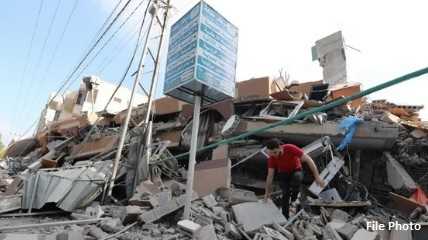
GAZA, Dec. 30 (Xinhua) -- The UN Office for the Coordination of Humanitarian Affairs (OCHA) warned Saturday of the intensification of infectious disease spread in the Gaza Strip, which suffered a lack of humanitarian aid and subsequent disastrous repercussions.
The spread of diseases in Gaza has intensified, especially due to the recent mass displacement throughout southern Gaza and the need for some families to move several times, OCHA said in a statement.
The agency added that this situation increases pressure on the already overwhelmed Palestinian health system, which is struggling to meet the enormous needs of the population at a time when the majority of hospitals across the strip are out of service.
It explained that nearly 180,000 people suffer from upper respiratory infections, while there are 136,400 cases of diarrhea, with half of them reported among children under the age of five.
Meanwhile, 55,400 people have had scabies, 5,330 have chickenpox, 42,700 suffer from skin rashes, and 126 suffer from meningitis.
The statement pointed out that 1.9 million people in Gaza, or approximately 85 percent of the whole population, have become internally displaced, including those who are forced to move frequently to seek refuge.
It added that the lack of food and survival items and poor hygiene exacerbate the already difficult living conditions of the displaced and prompt the spread of diseases.
The UN office said that due to the major security incidents that occurred in the vicinity of the Kerem Shalom crossing since it was partially reopened on Dec. 17, humanitarian aid through this crossing between Israel and Gaza was suspended during the past four days.
Meanwhile, 81 trucks loaded with food and medicine entered Gaza through the Rafah crossing with Egypt on Friday, the office added.
However, the aid convoys could face multiple challenges in their delivery. The UN Relief and Works Agency for Palestine Refugees said the Israeli forces opened fire Friday on an aid convoy that was returning from northern Gaza in a route designated by the Israeli army, leading to damage to one vehicle.
The World Food Program warned a few days ago that the Palestinian enclave is facing the fifth stage of acute food insecurity and that the risk of famine is increasing daily amid intensified conflict and restricted humanitarian access.




